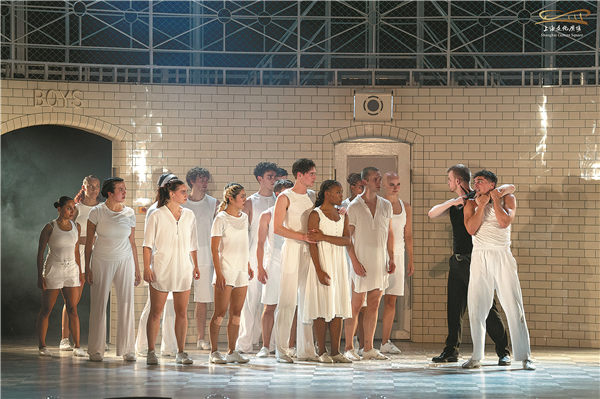Romeo and Juliet imprisoned by love
By ZHANG KUN in Shanghai | China Daily | Updated: 2024-06-18 06:34

Matthew Bourne's Romeo and Juliet, a radical modern reinterpretation of the classical love tragedy, is touring China starting with six performances at Shanghai Culture Square from Wednesday to Sunday.
The dance drama will go on to perform in Beijing from Thursday to Sunday, Guangzhou in Guangdong province from July 5 to 7, and Macao Special Administrative Region from July 11 to 13.
Bourne is the UK's most popular and successful choreographer and director. Best known for his creation of Swan Lake, the world's longest-running ballet production, he is a record-breaking nine-time Oliver Award winner, and the only British director to have won the Tony Award for both best choreographer and best director of a musical.
It has been five years since the British choreographer's creation was presented in China. His Swan Lake, featuring a menacing male ensemble instead of the female corps de ballet, made its China debut at Shanghai Culture Square in 2014. In 2016 and 2018, respectively his Sleeping Beauty and Cinderella performances were shown in Shanghai, and in 2019, Shanghai Culture Square saw the return of Swan Lake.
"Matthew Bourne's Swan Lake amazed audiences in Shanghai and since then, we have seen the creative model continue in more of his dance theater productions: the traditional tale subverted, classical music retained, contemporary aesthetics and psychological value highlighted," says Fei Yuanhong, deputy general manager of Shanghai Culture Square. "He has injected a new impetus and perspective into the dance world."
His version of Romeo and Juliet gives Shakespeare's timeless story of forbidden love an injection of raw passion and youthful vitality. A skillful retelling of teenage discovery and the madness of first love, the production won critical acclaim when it premiered in 2019.
Romeo and Juliet, presented by his New Adventures company, takes Shakespeare's timeless tragedy to a prison-like institute in the near future and adopts a free interpretation of the story, changing the feud between two families into conflicts between the guards and young inmates of the Verona Institute. It focuses on youthful love, and serious and relevant contemporary themes such as violence and consequences.
























